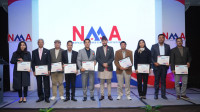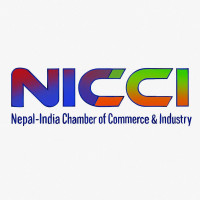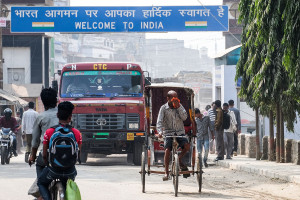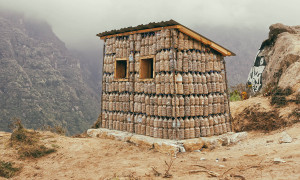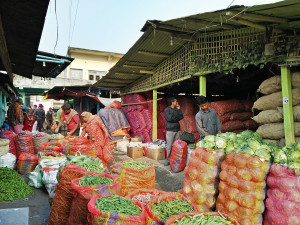Money
Prime Minister’s China visit: Nepal to seek duty-free access for 400 products
Nepal plans to ask China to provide duty-free access to around 400 new products with export potential during Prime Minister KP Sharma Oli’s visit to Beijing scheduled to start on March 20, officials of the Foreign and Commerce ministries said.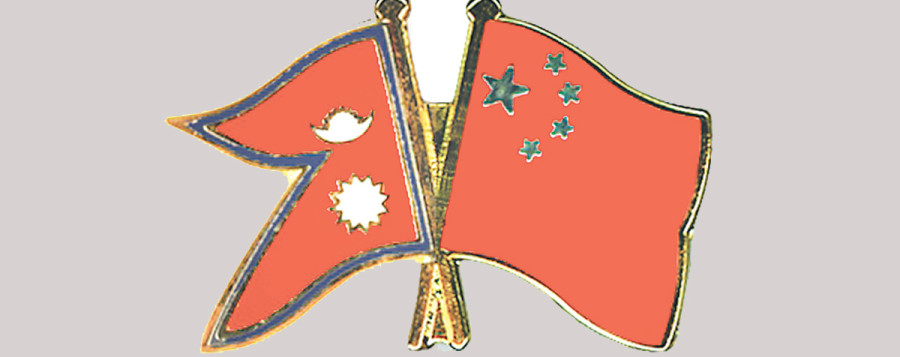
Prithvi Man Shrestha
Nepal plans to ask China to provide duty-free access to around 400 new products with export potential during Prime Minister KP Sharma Oli’s visit to Beijing scheduled to start on March 20, officials of the Foreign and Commerce ministries said.
Nepali traders can presently export 8,030 products to China without paying import duty, but they have been complaining that the list does not include some goods with high export prospects. China provides this same duty-free privilege to other least developed countries too. “We are going to seek duty-free access for additional products from China,” said Jhabindra Aryal, joint secretary at the Ministry of Foreign Affairs. “We have asked the Commerce Ministry to prepare a list of potential export products.”
The Commerce Ministry said that it had been thinking along the same lines and had asked the Foreign Ministry to pursue the matter. It is currently drawing a list of products for which it seeks duty-free access.
“We plan to seek exclusive duty-free access to around 400 products which have a good market in China,” said Commerce Secretary Naindra Prasad Upadhyaya, adding the products are yet to be finalised. Officials said handicrafts and herbal products, among others, were being discussed.
Nepal will request for the duty-free facility based on the six-digit customs harmonisation code (HS code) which broadens the definition of a product, according to Upadhyaya.
Nepal has long been requesting China to provide duty-free access to Nepal based on the six-digit customs harmonization code instead of the current eight-digit HS code.
In 2007, China provided duty-free access to 4,721 goods from the least developed countries including Nepal. The list was expanded to 7,787 goods in 2012 and then to 8,030 in 2014.
Among the products that Nepal can export to China under the duty-free facility are cooking utensils, outfits, footwear, tooth paste and brush, products related to beauty parlours and toiletries, printing paper, buttons made of animal bones, animal products, medicinal oil and products, pen, daily goods made of bird feathers and plastic products.
Aryal said that signing a commercial petrol import deal and transit treaty with the northern neighbour were other subjects being discussed. “We have not yet finalized the agenda,” he said.
The two sides are less likely to sign a proposed Bilateral Investment Protection and Promotion Agreement (Bippa) because of inadequate preparation. According to Yam Kumari Khatiwada, spokesperson for the Industry Ministry, the ministry has not received a reply from the Chinese side on Bippa for more than one year despite its repeated follow-ups.
Earlier, China had sent a draft Bippa to Nepal, and the Industry Ministry had returned it with its feedback in December 2014. “Since then, we have made two follow-ups through the Foreign Ministry but there has been no response so far,” she said. The details might have to be concluded at a technical level to sign the pact with China, and the Industry Ministry has asked the Foreign Ministry to take up the matter during the visit, she added.
The Industry Ministry has also asked the Foreign Ministry to include the subject of seeking Chinese assistance to develop a special economic zone in Panchkhal, Kavre on the agenda for the Prime Minister’s visit.
The government has acquired land to set up the SEZ and is in the process of preparing a detailed project report. “As China has shown interest to develop the SEZ many times, we have asked the Foreign Ministry to include it on the agenda,” said Khatiwada.
Another potential item on the agenda for the Prime Minister’s China visit is asking for Chinese assistance to upgrade the lab infrastructure for herbal, cosmetic and pashmina products.
Likewise, the Supply Ministry has proposed asking China to help build oil storage infrastructure at Panchkhal in Kavre, Khaireni in Tanahun and Battar in Nuwakot with a combined capacity of 162,000 kilolitres which is equivalent to three months’ supply. “As per the plan, there will be tanks with a capacity of 70,000 kilolitres in Panchkhal and 46,000 kilolitres each in Khaireni and Battar,” said Deepak Subedi, joint secretary at the Supply Ministry.
Meanwhile, China has proposed signing an agreement to conduct a feasibility study for petroleum exploration in Nepal besides a memorandum of understanding on cooperation in the area of intellectual property rights, according to the Industry Ministry.




 15.12°C Kathmandu
15.12°C Kathmandu

